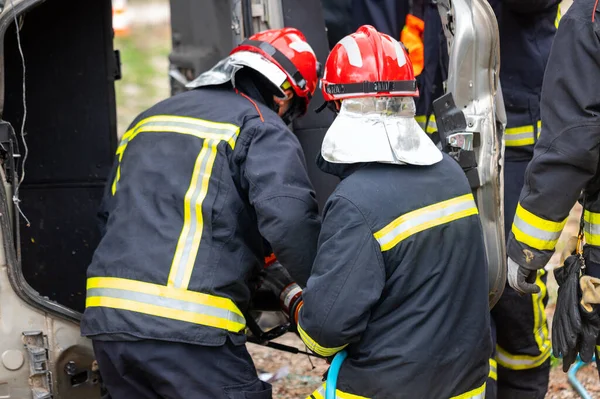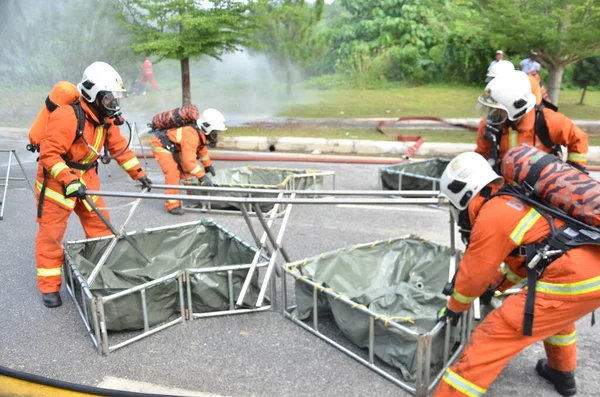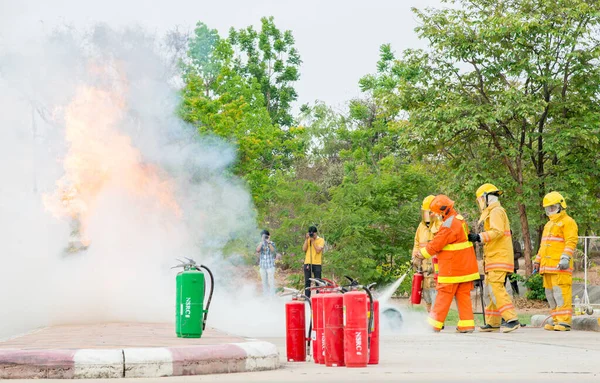Mastering Emergency Officer Training For Efficient Disaster Preparedness And Recovery
In an era of increasing natural disasters and emergencies, the role of emergency officers has become paramount. These professionals ensure communities are prepared for disasters and can recover swiftly afterward. Mastering emergency officer training is vital for enhancing disaster preparedness and recovery efforts. This article explores the core components of effective training, the skills required, and the benefits of a well-trained emergency officer. Please proceed to check out for more guidance.
The Importance of Emergency Officer Training
Enhancing Community Resilience
Enhancing community resilience is essential for effective disaster preparedness and recovery. Emergency officers foster this resilience by identifying risks and engaging community members through education and outreach initiatives. By building strong relationships and promoting collaboration, they empower individuals to support one another during crises, leading to more robust disaster response efforts.
Legal and Ethical Responsibilities
Emergency officers must be well-versed in their legal and ethical responsibilities to ensure effective disaster response while maintaining community trust. Training programs cover relevant laws and regulations, guiding officers in decision-making processes during crises. Understanding these responsibilities enables emergency officers to act within legal frameworks while prioritizing the safety and well-being of the communities they serve.

Core Components of Effective Training
- Risk Assessment and Management: Training emphasizes identifying potential hazards, assessing vulnerabilities, and developing mitigation strategies to minimize risks to communities and infrastructure during disasters.
- Incident Command System (ICS): Officers learn Incident Command System (ICS) principles, which provide a structured approach to disaster response through clear communication, defined roles, and efficient resource allocation, facilitating collaboration among various agencies.
- Emergency Response Planning: Training includes the development, implementation, and evaluation of adaptable emergency response plans that address diverse disaster scenarios, ensuring preparedness for various types of emergencies.
- Community Engagement and Communication: Officers are trained in effective communication strategies to educate the public, foster collaboration, and address community concerns, enhancing trust and cooperation during emergencies.
Skills Required for Emergency Officers
Leadership and Decision-Making
Effective leadership and decision-making are critical skills for emergency officers, especially in high-pressure situations. Training emphasizes the ability to remain calm, think quickly, and make informed choices that prioritize safety and efficiency during crises. By cultivating these skills, emergency officers can lead response efforts more effectively and inspire confidence in their teams and the communities they serve.
Problem-Solving and Adaptability
Problem-solving and adaptability are essential traits for emergency officers, enabling them to respond effectively to unpredictable disaster scenarios. Training focuses on fostering innovative thinking and the ability to pivot strategies in response to changing circumstances. By honing these skills, emergency officers are better equipped to address challenges as they arise, ensuring effective disaster management and recovery efforts.
Emotional Intelligence and Stress Management
Emotional intelligence and stress management are vital for emergency officers facing the emotional toll of disaster response. Training programs emphasize recognizing and regulating emotions, enabling officers to maintain composure and support their teams effectively during crises. By developing resilience and coping strategies, emergency officers can ensure their well-being and enhance their performance in high-stress situations.

Benefits of Mastering Emergency Officer Training
Improved Response Times
Well-trained emergency officers significantly improve response times during disasters by effectively assessing situations and implementing action plans. Their preparedness allows for quick coordination of resources and clear communication, ensuring that help reaches affected areas promptly. Faster response times ultimately save lives and minimize damage, enhancing overall disaster management efforts.
Enhanced Community Trust
Enhanced community trust is a vital outcome of effective emergency officer training and preparedness. When community members see officers well-equipped to handle disasters, their confidence in these professionals grows significantly. This trust fosters collaboration and communication, leading to more effective support during crises. Ultimately, it enhances overall resilience, encouraging individuals to engage in preparedness efforts and cooperate in emergencies.
Long-term Recovery and Resilience
Long-term recovery and resilience are critical components of effective disaster management, with trained emergency officers playing a key role in these efforts. Their expertise helps guide communities through recovery, implementing strategies that incorporate lessons learned from past disasters. This focus on sustained recovery ensures communities emerge stronger and better prepared for future emergencies.
Technological Advancements in Emergency Management
Utilizing Modern Tools and Technologies
Emergency officers can enhance disaster preparedness and response by leveraging modern tools and technologies. Geographic Information Systems (GIS) provide detailed mapping and risk analysis, while drones offer valuable aerial assessments of affected areas. Mobile applications facilitate real-time communication, improving coordination and operational efficiency during crises.
Data-Driven Decision Making
Data-driven decision-making is crucial for emergency officers to improve their effectiveness during disasters. By leveraging real-time data analysis, they can gain insights into evolving situations and identify community needs more accurately. This informed approach allows for efficient resource allocation and enhances overall situational awareness, ultimately leading to more effective and timely responses in emergencies.
Continuous Professional Development
- Ongoing Education and Training: Emergency officers engage in continuous learning through workshops and courses to stay updated on best practices and regulations in emergency management.
- Mentorship Programs: Establishing mentorship opportunities fosters knowledge transfer and professional growth, connecting experienced officers with newer members of the field.
- Certification and Accreditation: Pursuing additional certifications enhances credibility and opens doors for career advancement, ensuring officers maintain competitive skills.
- Networking Opportunities: Professional development events provide networking chances that facilitate collaboration and knowledge sharing among peers and industry experts.

